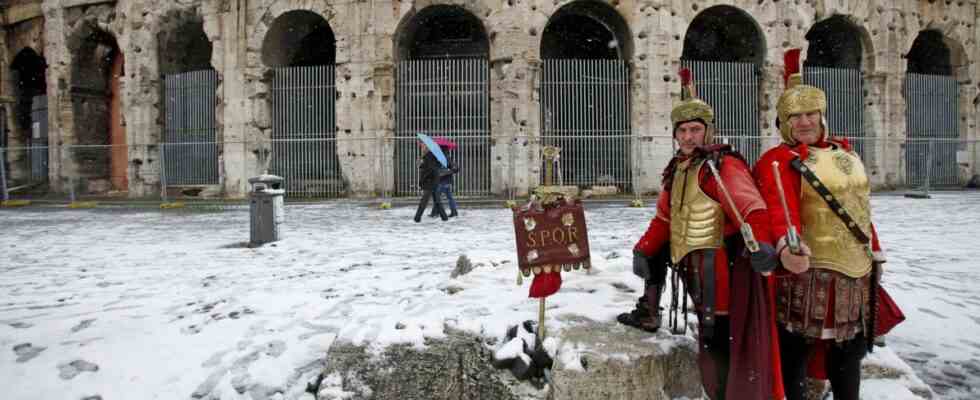Skiing essentially differs from traveling in that it can be expected and is reasonably calculable. That doesn’t mean that whizzing down snow-covered slopes and everything that goes with it doesn’t offer both nice and nasty surprises. The discovery of a rustic hut with particularly fluffy Kaiserschmarrn on offer is just as possible as a spiral fracture of the tibia. But all in all, you know in advance what to expect and what the fun will cost. Skiers have already spent most of their budget before they start skiing. Paying for a ticket is a prerequisite for the turnstile at the valley station to move and for the sphere of winter sports to open up. A day on the slopes is more like cinema than adventure.
First the waiter, then the carabinieri: the complaints of ripped off tourists are piling up
One of the great advantages of travel, on the other hand, is being able to gain experience, i.e. to learn something and – could, could have bicycle chain – to do it better next time. Travelers repeatedly find themselves in situations that are beyond what they are used to and which they therefore cannot handle with routine reactions. Depending on the type of tourist, some approach it rationally, others intuitively, but ultimately without knowing how it will end, i.e. unsure. A circumstance that contemporaries less friendly to travelers, once called robbers or highwaymen, know how to exploit. Then you sit, for example, in a restaurant in Rome, feel a bit inspired by the Dolce Vita and high-spiritedly order a plate of pasta with fish instead of the old pizza funghi like at home with Giuseppe on the corner freschissimowhich is said to be weighed in the kitchen – and finally gets the receipt slammed on the table with the coffee: 429.80 euros for two plates of spaghetti, prego. Newspapers and Internet forums are full of complaints from travelers who first called the waiter and then the carabinieri in Rome.
But the highwaymen are also learning. They no longer camouflage themselves as waitresses with black trousers and white shirts. They look like people who want to get your wallet: in strappy sandals and a red cape, with bushy cassis – and a sword! – they stand in front of the Colosseum and offer themselves for snapshots. The helmet and cape are supposed to look like antique soldiers, the sword is used to collect pay: last summer, three pseudo-legionnaires demanded up to 500 euros for their brief services. They only named the price after posing. As the Roman police have now announced, they forced their victims, sometimes by force, to pay the obolus and escorted them to the ATM.
Another experience: If you want to experience something while travelling, you don’t ask yourself how much it costs. He makes things easy and surprises you. The world belongs to the courageous.
Jochen Temsch likes to eat fish in Rome. But only in places far from people dressed as legionnaires.
(Photo: Bernd Schifferdecker (Illustration))

